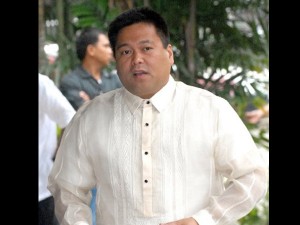VAT exemption on sale, import of petroleum products pushed in House
MANILA, Philippines — A lawmaker said that he has formalized a proposal for exempting from value added tax the sale and importation of petroleum products.
House Bill 6014 seeks to classify petroleum products as a VAT-exempt transaction, said San Juan City Representative Joseph Victor Ejercito, chairman of the committee on Metro Manila Development.
The bill seeks to amend Section 109 (1), Chapter 1, Title IV, Value Added Tax of RA 8424, otherwise known as the Tax Reform Act of 1997, as amended by Republic Act 9337 so that the following transactions shall also be VAT-exempt: Sale or importation of petroleum products (except lubricating oil, processed gas, grease wax, petrolatum, and coal and natural gas in whatever form or state) subject to excise tax imposed under Title VI; and Sale or importation of raw materials to be used by the buyer or importer himself in the manufacture of petroleum products subject to excise tax, except lubricating oil, processed gas, grease, wax and petrolatum.
As an answer to questions on the possible decrease in government
revenue should oil products be exempted from VAT, the lawmaker urged the government to consider the incomes and revenues derived from the Philippine Amusement and Gaming Corporation, Philippine Charity Sweepstakes Office, and the Malampaya gas project.
Instead of being classified as off-budget items, revenue from these sources “should be included from the annual drafting of the national budget,” said Ejercito who believed that these funds would be “sufficient to replenish the lost revenues.”
He disclosed that the projected gross income of Pagcor for 2012 was P45 billion while those of the PCSO and Malampaya were P31 billion and P43 billion respectively.
Exempting petroleum products from VAT would be a better option instead of dole-out projects like the Pantawid Pasada which, he said, “fell short” in providing the people with relief from oil price increases.
He said that the Pantawid Pasada “does not benefit the people at all” and that even operators and drivers of public utility vehicles do not see it as a solution to the increase in oil prices.
An increase in the price of petroleum products has a “domino effect” on the price of other prime commodities, added Ejercito, explaining that the situation could pose trouble for the country’s economic growth targets.
According to Ejercito, the Expanded VAT or Republic Act 9337 was enacted by the House back in 2004 to address the impending crisis due to an unprecedented increase in national debt.
At that time, “the country’s debt-to-gross domestic product ratio was at record high of 78.2 percent. Debt payments then were equivalent to 86.1 percent of government revenues which was unparalleled since 1986,” explained Ejercito.
“However, in 2012, the country’s debt-to-gross domestic product ratio fell to 55.4 percent, a large improvement from the 2004 level,” said the lawmaker.
